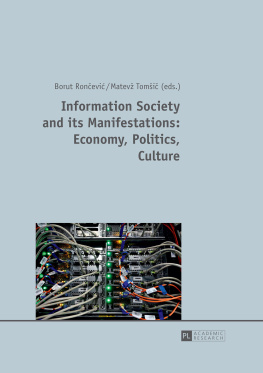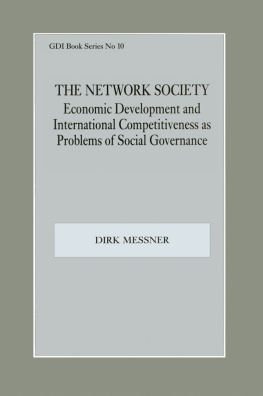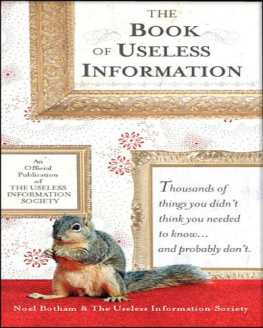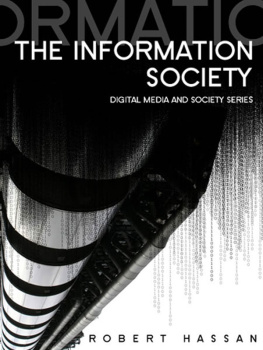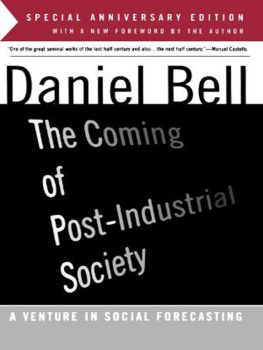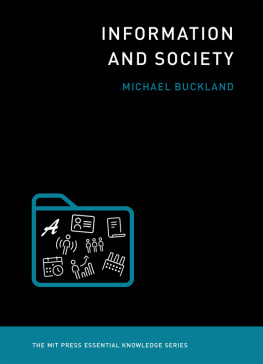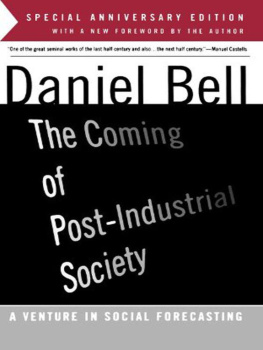Borut Ronevi / Matev Tomi (eds.)
Information Society and its Manifestations: Economy, Politics, Culture

Bibliographic Information published by the Deutsche Nationalbibliothek
The Deutsche Nationalbibliothek lists this publication in the Deutsche Nationalbibliografie; detailed bibliographic data is available in the internet at http://dnb.d-nb.de.
Cover image by Ana efarin.
ISBN 978-3-631-70355-7 (Print)
E-ISBN 978-3-631-70356-4 (E-PDF)
E-ISBN 978-3-631-70357-1 (EPUB)
E-ISBN 978-3-631-70358-8 (MOBI)
DOI 10.3726/b10694
Peter Lang GmbH
Internationaler Verlag der Wissenschaften
Frankfurt am Main 2017
All rights reserved.
PL Academic Research is an Imprint of Peter Lang GmbH.
Peter Lang Frankfurt am Main Bern Bruxelles New York Oxford Warszawa Wien
All parts of this publication are protected by copyright. Any utilisation outside the strict limits of the copyright law, without the permission of the publisher, is forbidden and liable to prosecution. This applies in particular to reproductions, translations, microfilming, and storage and processing in electronic retrieval systems.
This publication has been peer reviewed.
www.peterlang.com
About the author
Borut Ronevi is Professor of Sociology and Jean Monnet Chair at the Faculty of Information Studies in Novo mesto and the School of Advanced Social Studies in Nova Gorica. His main research interests are sociological theory, regional innovation systems and information society.
Matev Tomi is a political sociologist and Professor at the School of Advanced Social Studies in Nova Gorica. His research interests include character of elites, quality of governance, political culture, and democratization. He has been engaged in several international research projects on these topics.
About the book
The book provides a compilation of idiosyncratic manifestations of information society in techno-economic, political and cultural spheres. The contributors focus on the increasing complexity within information societies. To manage this complexity, societies develop constantly evolving context-specific modes of meta-governance. The contributions allow a better understanding of well-known conceptualizations and definitionsof information society and related concepts such as post-industrial society, post-modernity, as well as network society, and knowledge society.
This eBook can be cited
This edition of the eBook can be cited. To enable this we have marked the start and end of a page. In cases where a word straddles a page break, the marker is placed inside the word at exactly the same position as in the physical book. This means that occasionally a word might be bifurcated by this marker.
6 | 7
Information societies are characterised by a high level of structural complexity. This causes significant challenges in societal steering and demands development of contextualised meta-governance mechanisms. In this volume we do not provide a detailed overview of a variety of conceptualizations of information society and related or partially overlapping concepts such as post-industrial society, post-Fordism, network society, post-modernity, knowledge society, etc. Instead, we provide insight into the bricolage of specific manifestations of information society in techno-economic, political and cultural spheres, unveiling the wealth of context-specific elements that have to be taken into account in analytical and practical work. 7 | 8
8 | 9
School of Advanced Social Studies in Nova Gorica
Gregorieva 19, 5000 Nova Gorica, Slovenia
borut.roncevic, matevz.tomsic@fuds.si
Abstract:Information societies are characterised by a high level of structural complexity. The processes of comprehensive societal change known as modernisation led to unprecedented dynamics and heterogeneity of institutional forms and practices. Increase in speed of symbolic communication, in which information technologies played the key role, further contributed to this process. In this introductory chapter we are dealing with the question of whether strategic steering of an information society is even possible and what are the consequences of differentiation, networkisation and informatization for steering and governance. We then present the overview of contributions to this volume, which offer insight into the manifestations of an information society in spheres of economy, politics and culture.
Keywords:information society, networkization, strategic steering, governance
1. Introduction: Information in Complex Post-industrial Societies
Information societies are characterised by a high level of structural complexity. The processes of comprehensive societal change known as modernisation lead to unprecedented dynamics and heterogeneity of institutional forms and practices. Unprecedented speed and efficiency of symbolic communication, in which information technologies played the key role, further contributed to functional differentiation where particular systemic functions are performed by different subsystems with their specialised institutions and specific logics of functioning. Niklas Luhmanns social systems theory states that in contemporary society there is no central subsystem that would represent society as a whole (Luhmann 1995). According to Luhmann, different subsystems are completely autonomous and function on the basis of their special and particular interests and rationalities and each of them has its own medium of communication. Other authors have softened this claim by emphasising the reflection and systems discourse (e.g. Willke 1993), but there is a consensus about the de-centred nature of contemporary societies. In a similar way, for example, one of the key theorists of information society Daniel 9 | 10 Bell (1996) claims that in (postmodern) societies there is no unified referential system, no unified internal dynamic of structural change and no unified or dominant regulatory mechanism. They are composed of three different spheres, with each of them binding to its own axis-principle that has an intrinsic status. These are: the techno-economic sphere that works on the principle of functional rationality; the political sphere that is based on the principle of legitimacy; and the cultural sphere whose axis-principle is self-fulfilment of the individual, i.e. his/her existential realisation as a creative human being (ibid. 29).
Furthermore, Bell acknowledges three key aspects of the post-industrial society. The first is the data, information describing the empirical world. The second is the organisation of this data into meaningful systems. The third is knowledge, i.e. the use of information to make judgments and make appropriate decisions (Bell 1973). Although Bell was writing about the coming of the post-industrial society, by conceptualising information as a key organising principle of this society he effectively introduced the notion of the information society; a society in which collection, creation, assembling, reproducing and massive commodification of information becomes the key activity, a part of all aspects of social organisation, and thus plays a crucial role in steering societal development.
In this volume we do not provide a detailed overview of a variety of conceptualisations of the information society and related or partially overlapping concepts such as a post-industrial society, post-Fordism, network society, high modernity, post-modernity, knowledge society, etc. It is also not our goal to review crucial contributions such as those of Daniel Bell, Manuel Castells, Niklas Luhmann, Ulrich Beck or Alvin Toffler. We already have very good literature providing these, such as Webster (2014) or Mackay et al. (2002). Instead we provide analytical insight to specific manifestations of information society in three aforementioned spheres as defined by Bell, namely techno-economic, political and cultural, trying to unveil some of the aspects of information societies that make it possible to steer them purposefully.

